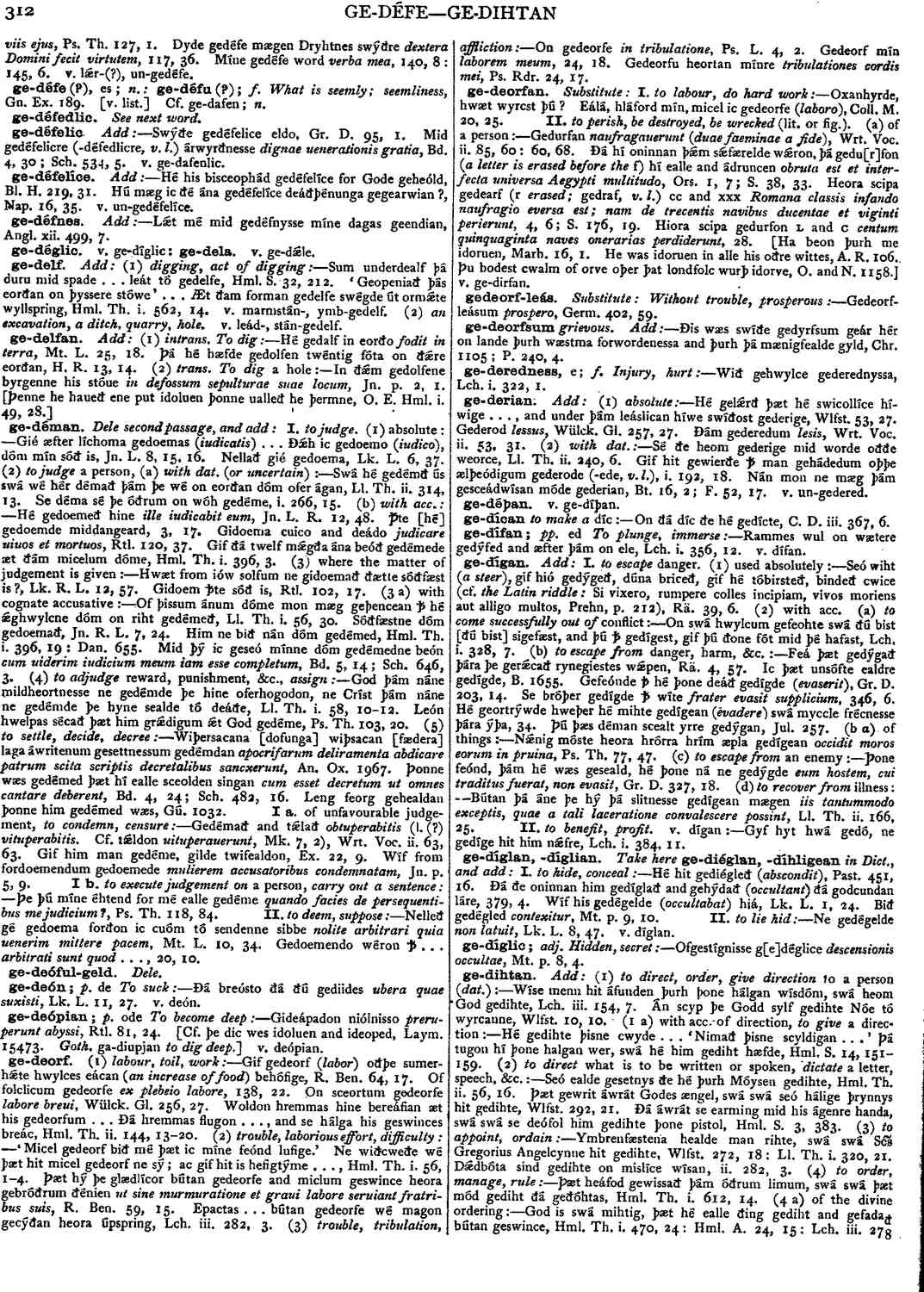ge-dígan
-
Seó wiht (a steer), gif hió gedýgeð, dúna briceð, gif hé tóbirsteð, bindeð cwice
cf. the Latin riddle:
Si vixero, rumpere colles incipiam, vivos moriens aut alligo multos,- Prehn, p. 212), Ra. 39, 6.
-
On swá hwylcum gefeohte swá ðú bist [ðú bist] sigefæst, and þú ꝥ gedigest, gif þú ðone fót mid þé hafast,
- Lch. i. 328, 7.
-
Feá þæt gedýgað þára þe geræcað rynegiestes wǽpen,
- Rä. 4, 57.
-
Ic þæt unsófte ealdre gedígde,
- B. 1655.
-
Gefeónde ꝥ hé þone deáð gedígde
(evaserit),
- Gr. D. 203, 14.
-
Se bróþer gedígde ꝥ wíte
frater evasit supplicium,
- 346, 6.
-
Hé geortrýwde hweþer hé mihte gedígean
(évadere)
swá myccle frécnesse þára ýþa, 34. -
Þú þæs déman scealt yrre gedýgan, Jul. 257. (b α) of things :-- Nǽnig móste heora hrórra hrím æpla gedígean
occidit moros eorum in pruina,
- Ps. Th. 77, 47.
-
Þone feónd, þám hé wæs geseald, hé þone ná ne gedýgde
eum hostem, cui traditus fuerat, non evasit,
- Gr. D. 327, 18.
-
Bútan þá áne þe hý þá slitnesse gedígean mægen
iis tantummodo exceptis, quae a tali laceratione convalescere possint,
- Ll. Th. ii. 166, 25.
-
Gyf hyt hwá gedó, ne gedíge hit him náfre,
- Lch. i. 384, II.
Bosworth, Joseph. “ge-dígan.” In An Anglo-Saxon Dictionary Online, edited by Thomas Northcote Toller, Christ Sean, and Ondřej Tichy. Prague: Faculty of Arts, Charles University, 2014. https://bosworthtoller.com/47645.
Checked: 0